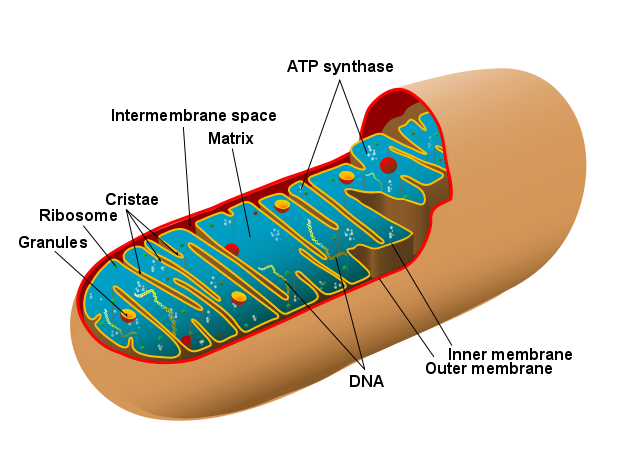Understanding the Impact of Excess Sugar on Mitochondrial Health
Written on
Chapter 1: The Dangers of Added Sugar
Recent research indicates that an overload of glucose could adversely influence mitochondrial membranes and their functionality.

Excess and Distress As I often mention in my posts about diet and nutrition, I have a couple of disclaimers to share: 1. Dietary habits can be a sensitive subject for many, and biases are common. What I present is not meant to be prescriptive; it’s important to find what works for you. 2. Nutrition science is intricate, as is the human body. You can often find evidence to support nearly any claim. It's essential to maintain a critical perspective. Research conducted in controlled laboratory settings, like the one we’ll discuss, has limitations.
A Focus on Sugar Specifically, we’re talking about glucose.

This six-carbon sugar serves as the main energy source for most life forms on our planet. Interestingly, glucose is favored because it reacts less with other substances in our bodies, allowing it to remain in its stable ring form more often. Our brains thrive on glucose, but in today’s Western world, we might be overdoing it. While a bit of sugar can make medicine more palatable, the average American's intake of 22 teaspoons of added sugar daily is excessive.
Our bodies can transform surplus glucose into glycogen for storage, but these reserves are finite. When glycogen stores are full, excess glucose converts to fat—a process known as de novo lipogenesis—which isn’t very efficient, although its efficiency may increase during carbohydrate surpluses. Constant consumption of glucose keeps insulin levels elevated, which can lead to various issues, including insulin resistance.
In summary, while glucose itself isn’t harmful, our average intake—particularly from added sugars—is excessive (natural sources like fruits are perfectly fine).
The Stiffness of Mitochondria Recent studies suggest that too much glucose can stiffen mitochondrial membranes and impair their function. Mitochondria are crucial powerhouses within our cells, and maintaining their health is essential.
Researchers conducted a study using TXNIP knockout mice, which lack a protein that regulates glucose uptake. These mice essentially allowed glucose to flood their cells. The mice were fed a diet consisting of about 30% protein, 60% carbohydrates, and 10% fat.
The findings revealed that the brown adipose tissue of these mice, which is rich in mitochondria, produced less energy. This reduction was partly due to lower levels of UCP1, a protein that helps convert mitochondrial energy into heat.
Key observations from the study include: - Reduced expression of genes responsible for transporting and elongating polyunsaturated fatty acids. - Mitochondrial membranes in these glucose-overloaded mice contained fewer polyunsaturated fatty acids, particularly DHA (an omega-3 fatty acid), essential for membrane fluidity. Lower levels of DHA resulted in stiffer mitochondria.
Interestingly, a ketogenic diet (high in fats and low in carbohydrates) improved energy production without increasing DHA levels in membranes; instead, it raised linoleic and arachidonic acid levels—other types of unsaturated fatty acids.
The researchers concluded that there’s a clear link between excessive carbohydrate consumption and mitochondrial function, showcasing one detrimental effect of a high-sugar diet. While these cellular changes may not be apparent in everyday conditions, they can significantly impact function under stress.
Caveats and Considerations However, it's important to note: - The knockout mouse model differs significantly from humans, even those with high glucose consumption. - The study focused only on brown adipose tissue, leaving open the possibility that similar effects occur in other tissues. - It remains uncertain if excessive glucose uptake is the primary issue for individuals with functional TXNIP. - Is a ketogenic diet necessary? Perhaps a more moderate approach with reduced sugar and increased fiber might be sufficient.
Ultimately, instead of swinging between extremes of sugar overload and strict dietary limitations, aiming for a balanced diet might be the most sensible approach.

Chapter 2: Expert Insights on Sugar and Mitochondrial Function
The first video titled "Why We Are All Getting SICK & Why SUGAR Isn't LOVE" features Dr. Robert Lustig discussing the impact of sugar on health, emphasizing the need for awareness about sugar consumption.
In the second video, "The Secret to Ignite Your Mitochondria for Better Blood Sugar," viewers will discover strategies to enhance mitochondrial function and manage blood sugar levels effectively.
You have just engaged with another article from In Fitness And In Health, a community focused on sharing knowledge and resources for achieving healthier, happier lives. If you'd like to receive more insights like this, consider joining our newsletter.